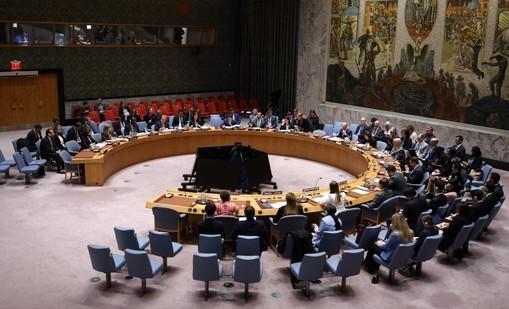
Was LeT involved? UNSC asks Pak on J&K attack, refuses to accept ‘false flag’ claim
The United Nations Security Council (UNSC) has refused to accept Pakistan’s “false flag” narrative on the Pahalgam attack in Jammu and Kashmir, which claimed the lives of three civilians and injured several others. The UNSC members, in a closed-door meeting, questioned whether the terror outfit Lashkar-e-Taiba (LeT), which is based in Pakistan, was likely to be involved in the attack.
The meeting was requested by Pakistan, which had claimed that the attack was a “false flag” operation designed to discredit its government. However, the UNSC members were not convinced by Pakistan’s narrative and raised questions about the involvement of LeT, which has a history of carrying out terrorist attacks in India.
The Pahalgam attack, which occurred on October 11, targeted a group of tourists, including women and children, who were on a pilgrimage to the Amarnath shrine. The attack was widely condemned by India and several other countries, with many calling for Pakistan to take immediate action against LeT and other terrorist organizations operating from its soil.
Pakistan, however, has denied any involvement in the attack, claiming that it was a “false flag” operation designed to discredit its government and create tensions between India and Pakistan. The Pakistani government has also accused India of carrying out the attack itself, in an effort to justify its military actions in Kashmir.
However, the UNSC members were not convinced by Pakistan’s narrative and raised questions about the involvement of LeT. The terror outfit, which is responsible for several terrorist attacks in India, including the 2008 Mumbai attacks, has a long history of carrying out attacks in the Kashmir Valley.
The UNSC members also reportedly brought up the targeting of tourists on the basis of religion, which is a serious concern for the international community. The Pahalgam attack was not the first time that tourists had been targeted in Jammu and Kashmir, and many have been killed or injured in attacks carried out by terrorist organizations operating in the region.
The UNSC’s refusal to accept Pakistan’s “false flag” narrative is a significant development, as it signals that the international community is not willing to accept Pakistan’s denials of involvement in terrorist attacks. The UNSC has been critical of Pakistan’s failure to take action against terrorist organizations operating from its soil, and has called on the country to take immediate action to prevent the use of its territory for terrorist activities.
The Pahalgam attack is just the latest in a series of terrorist attacks that have taken place in Jammu and Kashmir in recent years. The region has been plagued by violence and terrorism for decades, and the attacks have had a significant impact on the lives of the people living there.
In recent years, India has taken several steps to counter the terrorist threat in Jammu and Kashmir, including the revocation of Article 370, which granted special status to the region. The Indian government has also taken steps to improve the security situation in the region, including the deployment of additional troops and the establishment of new military bases.
The UNSC’s refusal to accept Pakistan’s “false flag” narrative is a significant development, as it signals that the international community is not willing to accept Pakistan’s denials of involvement in terrorist attacks. The UNSC has been critical of Pakistan’s failure to take action against terrorist organizations operating from its soil, and has called on the country to take immediate action to prevent the use of its territory for terrorist activities.
In conclusion, the UNSC’s refusal to accept Pakistan’s “false flag” narrative on the Pahalgam attack is a significant development, as it signals that the international community is not willing to accept Pakistan’s denials of involvement in terrorist attacks. The UNSC has been critical of Pakistan’s failure to take action against terrorist organizations operating from its soil, and has called on the country to take immediate action to prevent the use of its territory for terrorist activities.



